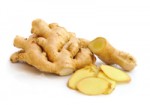 MSG is used to enhance flavor. It crops up in a wide variety of foods including potato chips, soup, and restaurant entrées. Some say that MSG is harmless while others paint a decidedly different story.
MSG is used to enhance flavor. It crops up in a wide variety of foods including potato chips, soup, and restaurant entrées. Some say that MSG is harmless while others paint a decidedly different story.
Eating a food with MSG in it could potentially trigger a whole host of symptoms—some of them quite nasty. This list includes migraine headaches, tiredness, nausea, rashes, an increased heartbeat, and depression.
MSG isn’t always easy to spot in some of your favorite foods. It may be disguised under a different name. Hydrolyzed protein, torula and/or autolyzed yeast are all synonyms for MSG. Other names (according to some sources there are at least 30 alternate words for MSG) include yeast extract and soy protein isolate.
When you do ingest some MSG it can have adverse effects on blood glutamate levels. MSG can cause glutamate levels to rise. Once these levels rise, they tend to stay there. Glutamate is an important neurotransmitter that plays a role in learning and memory. However, when levels of this chemical increase too much, glutamate can damage cells. This can mean that anyone dealing with a health condition may be further compromised by consuming MSG.
Many studies have suggested a link between MSG consumption and diseases of the brain and nervous system such as Alzheimer’s and Parkinson’s. Not surprisingly, some experts have called for a ban on MSG.
If you are worried about ingesting hidden sources of MSG, here’s one solution that could help protect you. Researchers have discovered that ginger could reverse the damage caused by MSG.
Long known for amazing health benefits of ginger, it has been touted as an antibacterial, antiviral, and antioxidant. Ginger contains a number of unique volatile oils that help to put the herb in the “top ten healing foods” category.
For their study, a research team injected rats with MSG and then injected ginger root extract for 30 days. Adverse effects caused by the MSG included depletion of four important neurotransmitters: epinephrine, norepinephine, dopamine and serotonin. When levels of these neurotransmitters dip too low, serious health consequences can be the result.
After administering the month long dose of ginger, the researchers found that the herb completely reversed the negative effects that MSG exerted in the brain. How potent was ginger in protecting the rats’ brains? The herb reversed the drop in the four neurotransmitters that was triggered by MSG and healed any damage caused in the brain. What’s more, these positive effects held steady even after the research team stopped administering the ginger extract.
Along with protecting you from the neuro-toxic effects of MSG, ginger can be used in a number of healing ways. Chew some ginger the next time you suffer from motion sickness or nausea. Ginger has the capacity to quell a “queasy” stomach.
You can also drink ginger tea for its antibacterial and antiviral properties. Ginger could help to stave off infections by helping to attack any foreign invaders trying to enter critical areas of your body.
Source(s) for Today’s Article:
Winters, R., “Ginger may protect the brain from MSG toxicity, says fascinating research,” Medical News Today web site, Sept. 22, 2013; http://www.naturalnews.com/042171_ginger_MSG_toxicity_brain_protection.html, last accessed Sept. 26, 2013.
Waggas, A.M., et al., “Neuroprotective evaluation of extract of ginger (Zingiber officinale) root in monosodium glutamate-induced toxicity in different brain areas male albino rats,” Pak J Biol Sci. Feb 2009 1; 12(3): 201-12.
